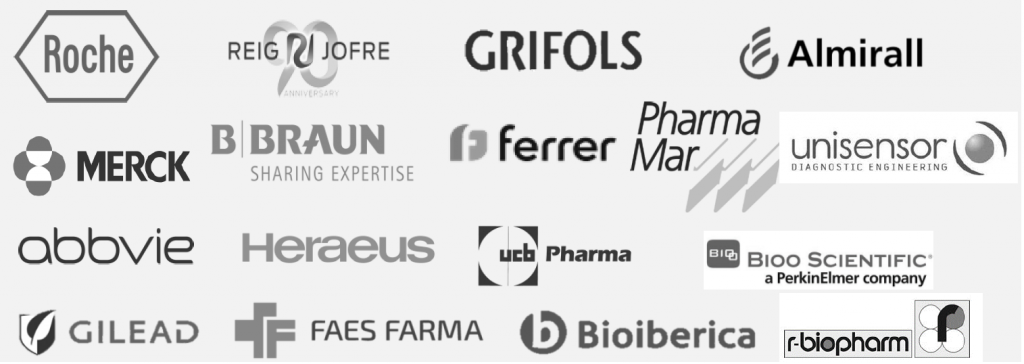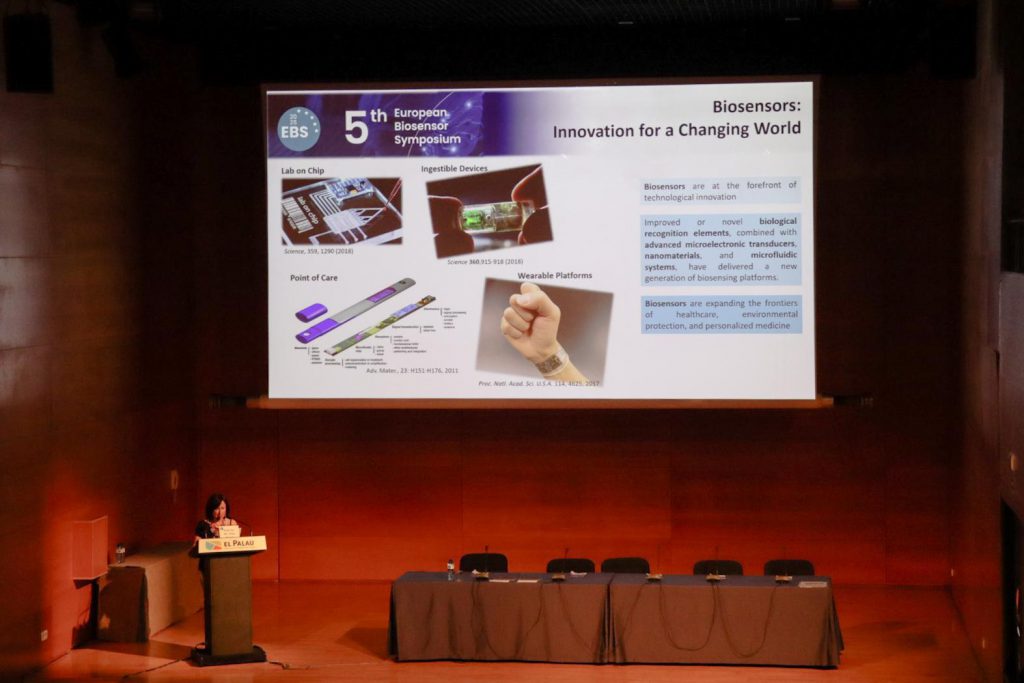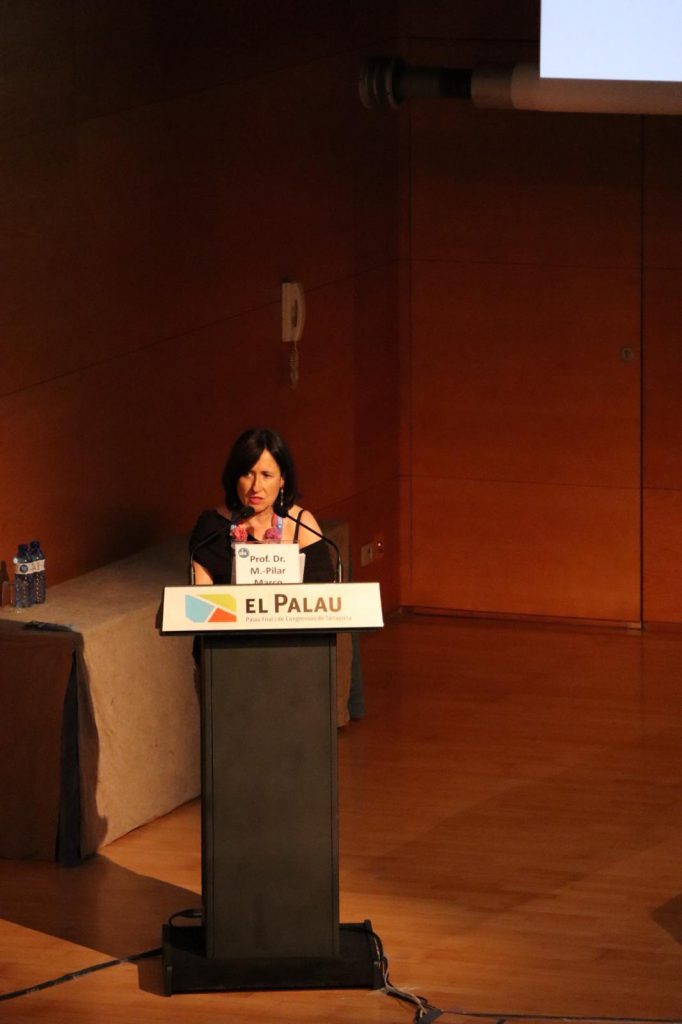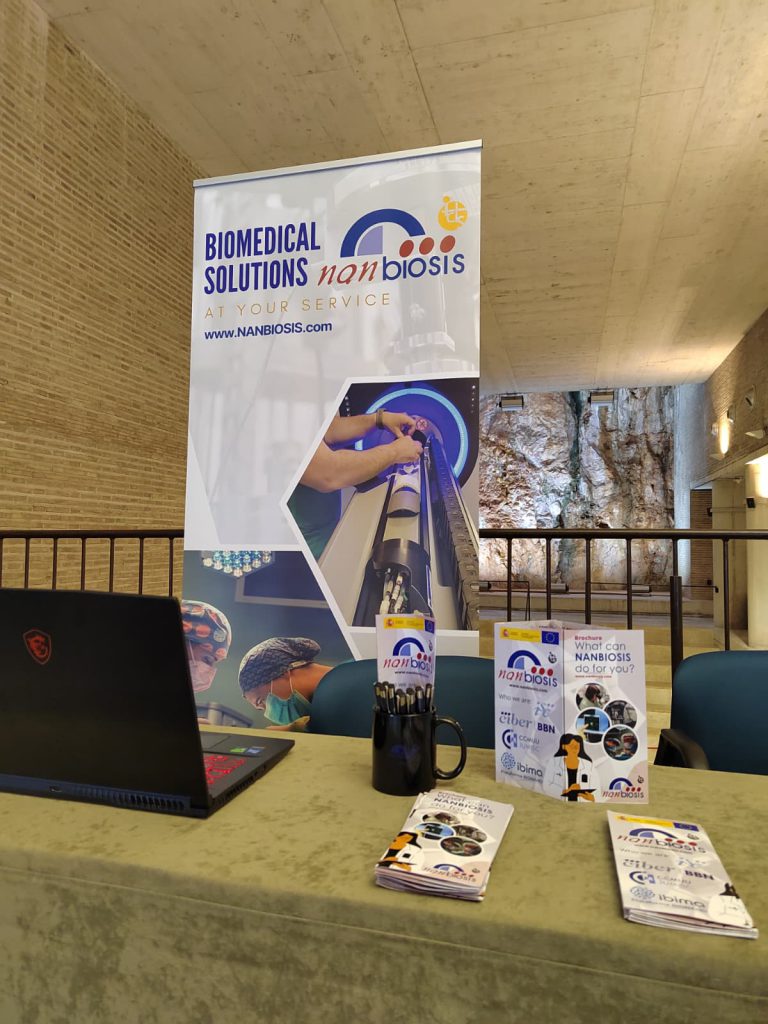
NANBIOSIS sponsored EBS2025 in Tarragona, showcasing the advances of Units 2 & 29 in antibodies and oligonucleotides for next-gen biosensors.
Tarragona, October 2025 — NANBIOSIS proudly participated as an official sponsor of the 5th European Biosensor Symposium (EBS2025), held from 26 to 29 October 2025 in Tarragona. The international event, chaired by Prof. Dr. M. Pilar Marco (IQAC-CSIC / CIBER-BBN and Scientific Director of Unit 2 of NANBIOSIS), brought together hundreds of researchers, engineers and industry leaders to discuss the latest advances in biosensors, nanotechnology, microfluidics, and diagnostic devices.
Through its Unit 2 and Unit 29, NANBIOSIS highlighted its key role in supporting cutting-edge biosensor research and development — from custom antibody generation to oligonucleotide synthesis — providing essential technological capabilities for the next generation of diagnostic and monitoring tools.
NANBIOSIS: Driving Innovation in Biosensor Research
As a national Singular Scientific and Technical Infrastructure (ICTS), NANBIOSIS provides open access to advanced facilities and expert support in biomedicine, nanomedicine, biomaterials and biosensors.
Its participation in EBS2025 reinforces the infrastructure’s mission to bridge academic research and industrial innovation, helping translate discoveries into practical applications that benefit health, environment, and society.
Unit 2: Custom Antibody Service (CAbS-Nb4D-CSIC)
Represented at the symposium by members of the Nanobiotechnology for Diagnostics (Nb4D) group at IQAC-CSIC, Unit 2 showcased its extensive experience in the design, production and characterization of custom immunoreagents.
The Custom Antibody Service (CAbS) provides comprehensive solutions for hapten synthesis, monoclonal and polyclonal antibody generation, and antibody conjugation with enzymes, fluorophores or nanoparticles.
Its ISO 9001:2015-certified processes ensure high-quality reagents for biosensing applications across sectors such as medical diagnostics, food safety, environmental monitoring, and biomarker detection.
During EBS2025, the Nb4D group, which also chaired the conference, presented advances in immunosensor design and analytical performance optimization, highlighting how antibody engineering can enhance biosensor sensitivity and selectivity.
Unit 29: Oligonucleotide Synthesis Platform (OSP)
Also based at IQAC-CSIC, Unit 29 – the Oligonucleotide Synthesis Platform (OSP) – plays a pivotal role in developing nucleic-acid-based biosensors. The unit specializes in the synthesis, purification and characterization of modified oligonucleotides, including DNA and RNA derivatives conjugated with lipids, peptides or carbohydrates.
At EBS2025, Unit 29 representatives engaged with researchers developing aptamer-based biosensors and nucleic acid diagnostics, exploring opportunities for collaboration in sequence modification, bioconjugation and sensor surface functionalization.
These capabilities align closely with current trends in biosensing and nanotechnology, where hybrid bio-nano systems are key to creating more sensitive, specific, and portable diagnostic devices.
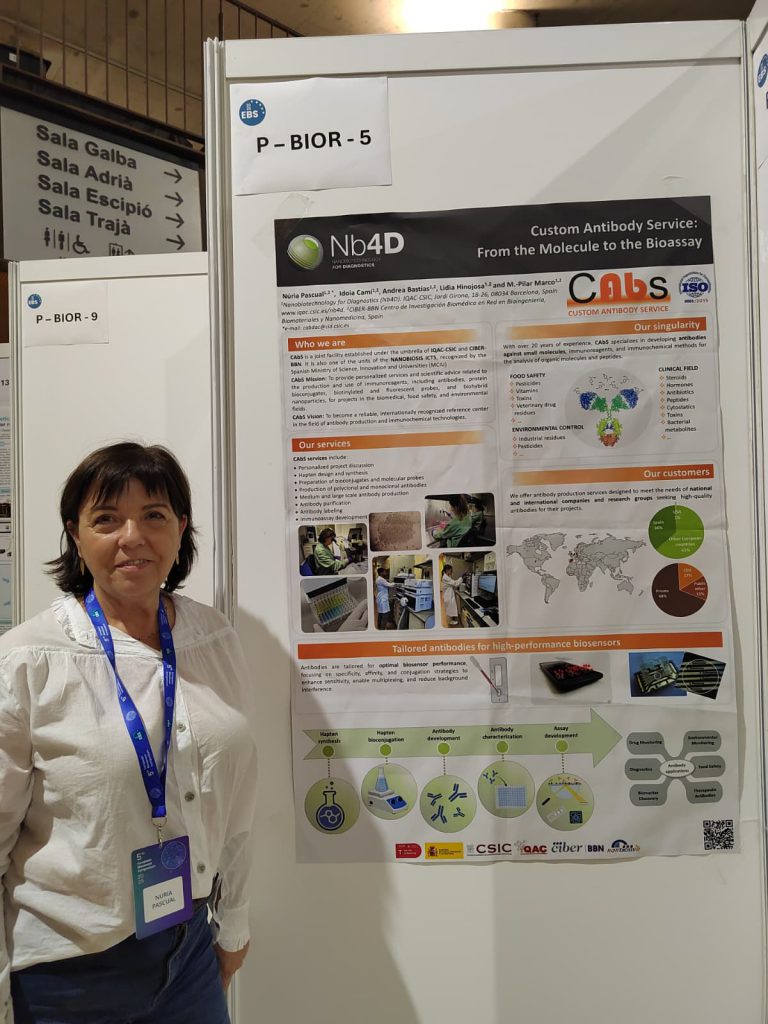
Strengthening Collaboration in the European Biosensor Community
EBS2025 offered NANBIOSIS a valuable opportunity to connect with international experts, startups, and industry partners. The symposium’s scientific sessions showcased breakthroughs in AI-enhanced biosensors, organ-on-chip models, nanomaterial-based detection, and wearable diagnostic technologies.
Through its sponsorship and active participation, NANBIOSIS reaffirmed its role as a strategic partner in European biosensor research, offering comprehensive services that cover the entire innovation pipeline – from biomolecule design to device functionalization and validation.
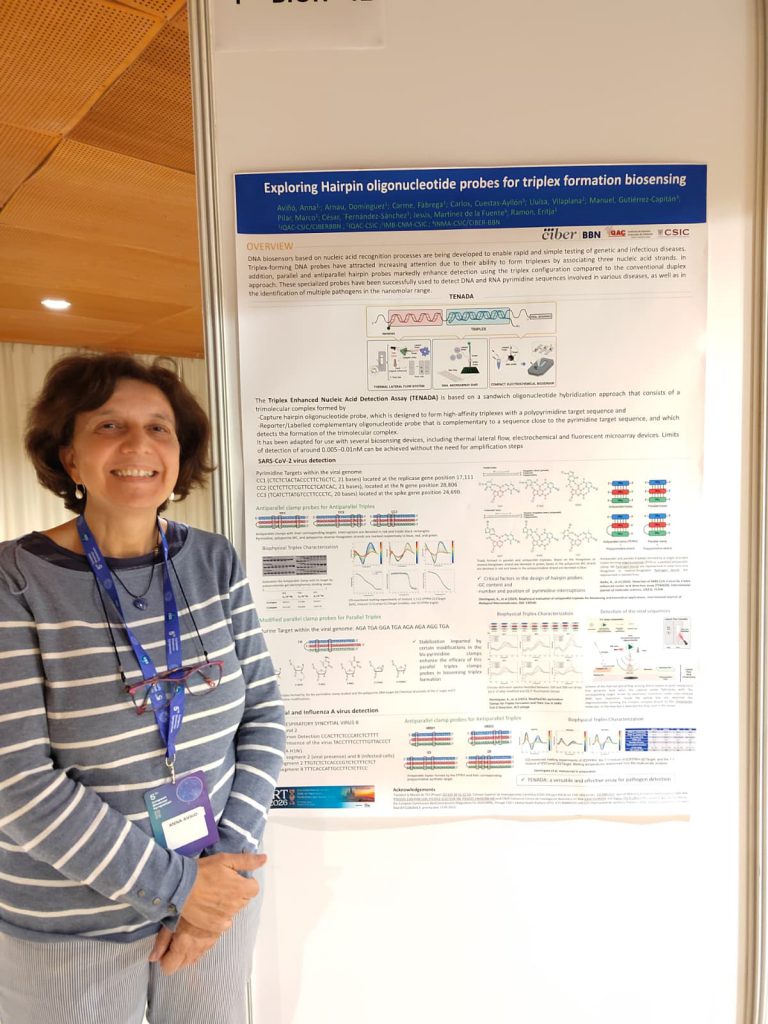
About the European Biosensor Symposium 2025
The 5th European Biosensor Symposium (EBS2025) took place in the Tarragona Exhibition and Congress Center, gathering leading scientists from academia and industry. The event was organized by IQAC-CSIC and CIBER-BBN, under the leadership of Prof. M. Pilar Marco, with support from sponsors such as NANBIOSIS, Universitat Rovira i Virgili (URV), and Reial Acadèmia de Farmàcia de Catalunya.
The symposium addressed emerging trends in biosensing technologies, micro- and nanofabrication, artificial intelligence for diagnostics, and organ-on-chip platforms – reflecting the multidisciplinary nature of modern biosensor research.
What is NANBIOSIS?
The goal of NANBIOSIS is to provide comprehensive and integrated advanced solutions for companies and research institutions in biomedical applications. All of this is done through a single-entry point, involving the design and production of biomaterials, nanomaterials, and their nanoconjugates. This includes their characterization from physical-chemical, functional, toxicological, and biological perspectives (preclinical validation).
Leading scientists
The main value of NANBIOSIS is our highly qualified and experienced academic scientists, working in public institutions, renowned universities and other research institutes.
Custom solutions
Designed for either scientific collaboration or the private industry, we adapt our services to your needs, filling the gaps and paving the way towards the next breakthrough.
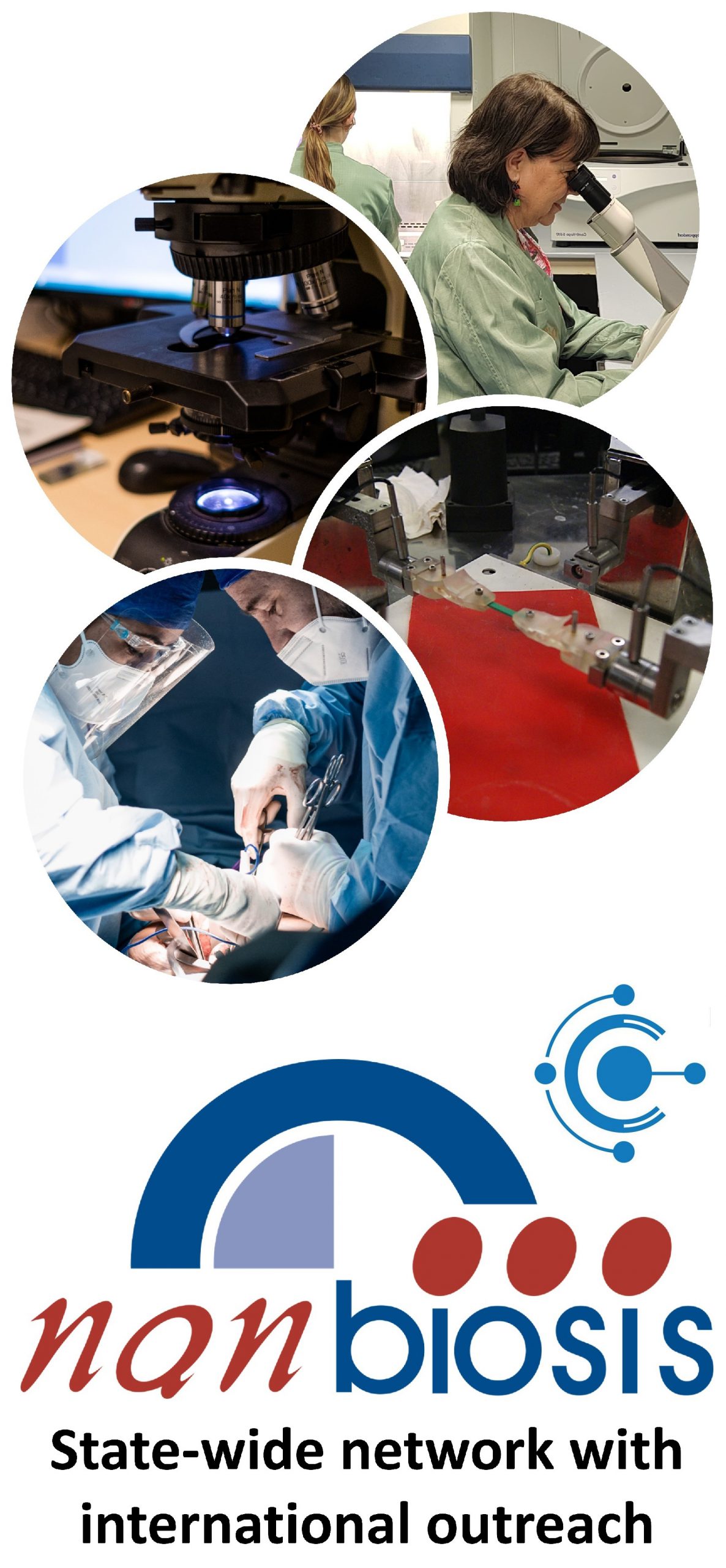
Cutting-Edge facilities
Publicly funded, with the most advanced equipment, offering a wide variety of services from synthesis of nanoparticles and medical devices, including up to preclinical trials.
Standards of quality
Our services have standards of quality required in the pharmaceutical, biotech and medtech sectors, from Good Practices to ISO certifications.
In order to access our Cutting-Edge Biomedical Solutions with priority access, enter our Competitive Call here.
NANBIOSIS has worked with pharmaceutical companies of all sizes in the areas of drug delivery, biomaterials and regenerative medicine. Here are a few of them:
